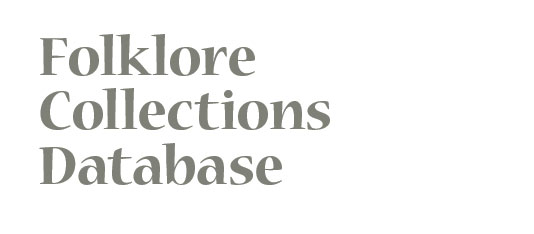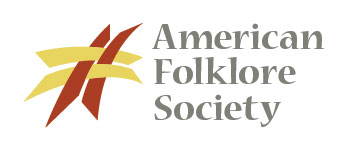Date 2000 (Date created)
Summary
Subseries is organized by partner or the event. Boxes 1-4 are organized alphabetically. Box 5 consists of correlating CDs and 1 VHS tape and is also organized alphabetically. ,
Subseries reflects key partnerships between the Maryland Traditions Program and the following organizations:
Chesapeake Bay Maritime Museum has partnered consistently with Maryland Traditions (2002-2006, 2008-Present) to document living traditions of the Upper Chesapeake Bay and maritime traditions throughout the tidewater region. The partnership has been carried out under the guidance of the Kerr Center for Chesapeake Studies at CBMM. Fieldwork and programming has been conducted by Kelly Feltault, Shelly Drummond, Melissa McLoud, and Marian Robbins, and is currently directed by Michelle Zacks. Programs have included Chesapeake People which introduces school children and visitors to practitioners of occupational folklife (boatbuilders, crab pickers, watermen) and the Chesapeake Folk Festival (2008-2012). Field documentation includes narrative traditions and material culture of Chesapeake Bay watermen, occupational culture of crabbing, crab picking, oyster dredging, oyster shucking, gospel music, Latino devotional music, vernacular arts and crafts, foodways, decoy carving, boat building, skipjack restoration, barbershops, and corn and chicken farming.
Folklore & Folklife Programming at Frostburg State University (2004-Present) is a partnership that has been carried out under the direction of Dr. Kara Rogers Thomas, professor of folklore in the Department of Sociology at FSU. Dr. Rogers Thomas’ position was created in partnership with FSU to create meaningful dialog between FSU and surrounding region. FSU was founded in part on land donated by active coal miners; the folklife program aims to extend the resources of the University to working communities in the area. With the assistance of her students, Dr. Rogers Thomas conducts fieldwork in the region to document living traditions and regional attitudes about Appalachian identity. This partnership has produced several ongoing initiatives based on regional fieldwork: the Appalachian Festival at FSU (2007-Present) and Mountain City Traditional Arts (2009-Present), a main street cooperative for the promotion of goods produced by regional folklife practitioners. Fieldwork carried out by Dr. Rogers Thomas and her students includes musical traditions (bluegrass, old-time, gospel, Mennonite sacred music, community bands, Scottish Highland piping, mountain clogging, blues, barbershop quartet), foodways, herbal remedies and ethnobotany,
Lower Shore Traditions is a partnership between the Ward Museum of Wildfowl Art (WMWA) and Maryland Traditions (2002-Present) documenting the folklife of the Lower Eastern Shore of Maryland (Caroline, Dorchester, Somerset, Talbot, Wicomico and Worcester Counties). The Ward Museum holds the world’s largest and most diverse collection of wildfowl art, with a primary focus on duck and waterfowl decoys. Fieldwork has been conducted by Dan Parsons, Lora Bottinelli, and Dr. Cindy Byrd. Under the directorship of Lora Botinelli and Dr. Byrd, Lower Shore Traditions has conducted wide-ranging fieldwork in the Lower Shore’s hunting, fishing, and trapping communities, documenting the cultural context of their material collections. Fieldwork is ongoing, and Lower Shore Traditions has produced numerous exhibitions, publications, festivals, and programs, including Pass It On: Cultural Traditions of the Lower Eastern Shore, a K-12 Curriculum and Activity Guide (2011).
Maryland Traditions at UMBC University of Maryland Baltimore County and Maryland Traditions have an exploratory foundational partnership which began in 2010 and is anchored within the American Studies Department. The aim of the partnership is to connect the fieldwork initiatives, public programs, and curatorial initiatives of Maryland Traditions to students interested in public folklore, public service, museum studies and application of classroom learning to dynamic and diverse cultural and community-based settings. Maryland Traditions at UMBC consists of course offerings, fieldwork opportunities, filmmaking and a documentary film-screening series. Maryland Traditions Co-Founder Elaine Eff launched the first phase of the partnership in 2010, where she served as folklorist-in-residence until 2011. In 2012, Dr. Michelle Stefano was appointed Program Coordinator of Maryland Traditions and the UMBC Folklorist-in-Residence. She teaches courses on ethnography, museum and heritage studies, and cultural documentation. In addition, Maryland Traditions at UMBC works in coordination with the Service-Learning Program of the UMBC Shriver Center to work alongside Maryland Traditions folklorists out in the field and organizes events that focus on themes relating to public folklore and safeguarding living heritage, such as the 2012 Dresher Center for the Humanities panel discussion event, Approaching Authenticity: Locating Living Cultural Memories, Identities and Traditions in the 21st Century. Fieldwork is ongoing in Baltimore County, Baltimore City, and beyond, and has included folklife areas as varied as duckpin bowling, Persian classical music, Nepali folk music, quilting, the Singing and Praying Bands of the Chesapeake Tidewater region, Irish traditional music, the Hagers-Town Town & Country Almanack; current fieldwork initiatives have a particular focus on the narrative and occupational traditions of Sparrows Point Steel Mill (Dundalk, Baltimore County) and its communities.
Mid-Maryland Traditions was a partnership between the Catoctin Center for Regional Studies at Frederick Community College and Maryland Traditions (2002-2005) focused on Frederick, Carroll, and Washington Counties. This partnership was directed by historian Dean Herrin at the Catoctin Center and included a fieldwork survey team of folklorists Catherine Heibert Kerst and Steve Warrick. The fieldwork survey documented folklife throughout the tri-county region, including dairy farming, foodways, working narratives of life along the C&O Canal and the B&O and Western Maryland Railroad, material culture (quilting, boat model-making, bladesmithing, tombstone carving, wood carving), jousting, the Carroll County Cake Auction, and musical traditions (Carroll County Ramblers bluegrass band, African-American gospel, jazz, and community bands). The survey resulted in the book Culture at a Crossroads: Mid-Maryland Traditions (2011), edited by Alison Kahn.
Montgomery Traditions was a partnership between the Arts & Humanities Council of Montgomery County and Maryland Traditions (2005-2010). Conceived in 2005, the groundwork for this partnership consisted of a 2006 survey of folklife in Montgomery County. The initial fieldwork team (Mark Puryear, Jason Morris, Divya Kumar, and Juan Dies) carried out field documentation of a wide range of longstanding and immigrant communities in rural and urban settings. During the period of this partnership, Montgomery County was the most rapidly urbanized and culturally diversified county in the state of Maryland. Following the initial fieldwork survey, additional fieldwork documentation and public programs (Magical Montgomery, World of Wheaton, World of Montgomery) were carried out by Jason Morris (2006-2008) and Mark Puryear (2008-2010). Fieldwork collections include documentation of bluegrass, piedmont blues, Eastern European folk music, Caribbean Carnival, South Asian music and dance, Chinese, Latino, and West African traditions.
Old West Baltimore Project was a partnership between the Baltimore City Heritage Area and Maryland Traditions (2004-2005). This project was carried out under the direction of ethnomusicologist Harold Anderson and documented the community memories and living traditions in the portion of Baltimore City known as “Old West Baltimore.” Old West Baltimore includes the Pennsylvania Avenue corridor which, in its heyday, was considered to be a center for African-American culture on par with the Harlem Renaissance. Dr. Anderson’s fieldwork included musical traditions (gospel, R&B, hand-dancing, marching bands), the work of Arabbers (African-American street vendors who sell produce by horse-and-wagon), a cultural map of the region including the churches and clubs that anchored significant cultural activities, and produced a DVD titled “Going Home: A Heritage Tour of the Music Traditions of Old West Baltimore.”
Prince George’s Traditions was a partnership between the African American Museum & Cultural Center, the Prince George’s Arts Council and Maryland Traditions (2007-2011). The project began under the direction of Steven Newsome at the Prince George’s Arts & Humanities Council (2007-2008) and consisted of planning for a survey of material, musical, and architectural expressive culture in Prince George’s county’s devotional communities. Phase One of the fieldwork survey consisted of a survey of ten African-American Christian churches and began in 2009 under Newsome’s direction at the Prince George’s African American Museum and Cultural Center; Dr. Harold Anderson conducted the fieldwork survey, documenting traditions via photographs, audio recordings, and film. Additional phases of fieldwork were not carried out. In 2010, the Prince George’s Arts & Humanities Council – along with Dr. Harold Anderson and Steven Newsome – produced a symposium and art exhibition on the aesthetics of African-American sacred traditions at the David C. Driskell Center at University of Maryland College Park entitled “Sacred Reflections: Creative Visions of Faith in Prince George’s County” (2011).
Southern Maryland Traditions was a partnership between St. Mary’s College of Maryland and Maryland Traditions (2002-2005). This partnership was led by folklorists Michael and Carrie Kline. The Klines taught in the English Department at SMC and conducted a folklife survey in the tri-county region of Southern Maryland (Charles, Calvert, and St. Mary’s Counties). Fieldwork included documentation of African-American gospel music, foodways, occupational culture (tobacco farming, handling, and auctioneering; boatbuilding; beekeeping; shopkeeping; watermen; black watermen), immigrant perspectives and traditions (Filipino music and dance, Chinese grocery), and Jewish and Christian sacred traditions. Fieldwork was conducted in partnership with the SlackWater Center at St. Mary’s College. The Kline’s produced two CD projects from fieldwork during the course of this partnership: Twelve Gates to the City: African American Sacred Singing in Southern Maryland, Volume 1 (2003) and A Bright Side Somewhere: Old Time Songs of Praise--African American Sacred Singing in Southern Maryland, Vol. 2 (2003).

